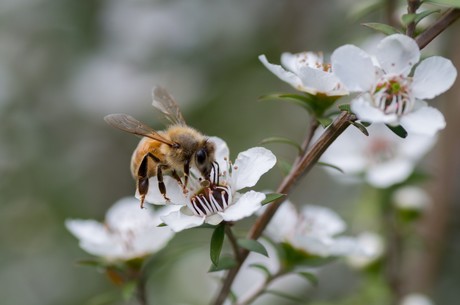How could gene editing serve NZ's primary industries?

Removing allergens from milk, making mānuka disease resistant and preventing wilding pines are some potential future uses of gene editing in New Zealand if the country chooses to utilise this new technology.
That’s according to the Royal Society Te Apārangi’s new discussion paper ‘The use of gene editing in the primary industries’, which outlines the relevant considerations, risks and potential benefits for five scenarios of how gene editing could be used for primary production sectors including agriculture, forestry and horticulture.
The discussion paper is the third in a series, with previous papers exploring the potential use of gene editing for human health and pest control in New Zealand. It is part of the society’s larger Gene Editing in Aotearoa project, for which a multidisciplinary expert panel and reference group have been brought together to explore the wider social, cultural, legal and economic implications of gene editing in New Zealand, incorporating Māori perspectives and broader cultural contexts.
“Gene editing techniques will allow more targeted and precise genetic changes than what has been possible before in crop and livestock breeding,” said Professor Barry Scott, co-chair of the expert panel.
“It’s a good time for New Zealanders to consider what gene editing could offer our primary industries and how they’d feel about its use.
“One potential application of gene editing is to speed up the time it takes to produce new apple varieties. New Zealand is known internationally for our apples and there is strong commercial pressure to develop new and improved varieties but the process is slow, because it can take five years before any fruit is produced to start the evaluation and testing of potential new apple varieties.
“Gene editing could offer the opportunity to temporarily remove the gene that slows down flowering — so the trees would flower in eight months instead of five years. Once a new variety of apple with desirable characteristics had been selected, traditional plant breeding would reintroduce the genes that slow down flowering. This means the resulting trees sold to growers would not contain any of the gene editing changes, but would have been introduced to the market much faster than by using existing breeding methods.”
Another scenario the paper discusses is using gene editing to make mānuka resistant to disease. As noted by panel member and lawyer Irene Kereama-Royal, “Myrtle rust and kauri dieback disease have got people thinking about what we can or should do to conserve our native taonga species.
“Extracts of leaves and bark from mānuka have been used for centuries by Māori and, with the growth in the mānuka honey industry, mānuka is now an important plant for New Zealand both culturally and economically. Should we use gene editing to create new varieties of mānuka that are resistant to disease?”
A third scenario is to use gene editing to make exotic conifer trees, such as Douglas fir, sterile. This area is of particular interest to panel member Dr Phil Wilcox, who has over 30 years’ experience in forestry research.
“Wilding trees are a big problem in New Zealand,” Dr Wilcox said. “Not only do they outcompete native species, they invade and modify unique natural ecosystems, are costly to remove and can contribute to pollen allergies.
“Gene editing could halt the production of cones and pollen in these species, which would mean that when these trees are planted for forestry, shelter belts or to help prevent erosion or climate change, they wouldn’t escape into places where they are not wanted.”
The society encourages New Zealanders to consider these and other scenarios discussed in the paper and let the panel know their thoughts. The paper can be viewed here and feedback should be sent to marc.rands@royalsociety.org.nz.
argenx and Monash University partner against autoimmune diseases
To advance a pioneering molecule for autoimmune diseases, global immunology company argenx has...
Archer completes potassium sensing alpha prototype
Quantum technology company Archer Materials Limited has developed an early Biochip prototype...
Farm animals and aquaculture cryopreservation partnership announced
Vitrafy Life Sciences Limited has announced that it has entered a 12-month exclusive agreement...



